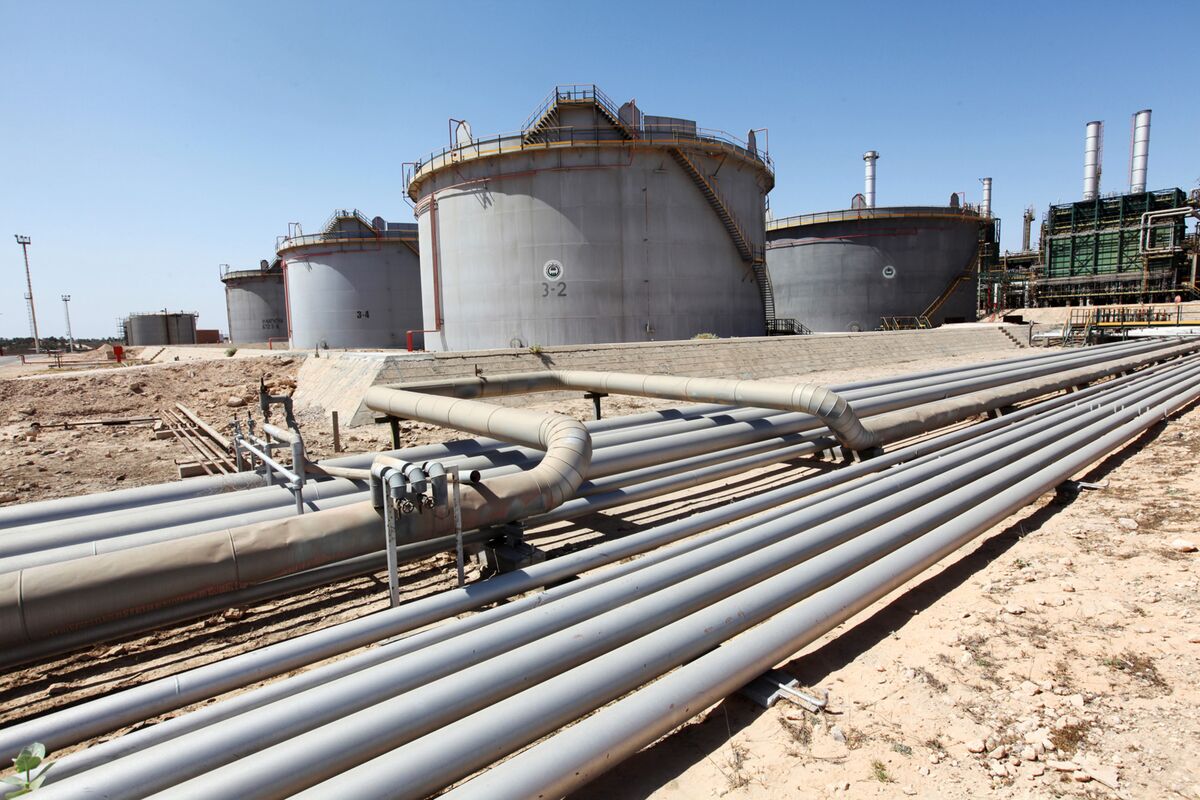
The oil blockade in Libya is expanding as different factions compete for control over the central bank
There has been an expansion of the oil blockade in Libya, as eastern leaders are insisting that western authorities reconsider their decision to replace the central bank governor. This position holds significant importance in a country where control over oil revenue is highly coveted by all factions.
Similar to an auditor, the situation surrounding the Central Bank of Libya is causing concern as it could lead to further instability in a significant oil-producing country. The nation is divided between eastern and western factions, with each receiving support from Turkey and Russia.
According to two oil engineers, the Sarir field has experienced a significant decrease in its daily output of 209,000 barrels due to disruptions at the El Feel, Amal, Nafoora, and Abu Attifel fields.
In a move reminiscent of a meticulous investigator, the Eastern factions have made a firm commitment to maintain the closure of Libya’s oil output. Their demand is clear: they insist that the internationally recognized Presidency Council and Government of National Unity in Tripoli must reinstate veteran central bank governor Sadiq al-Kabir to his former position.
Political institutions, established during various attempts at transition since the 2011 revolution, have raised concerns about their legitimacy. Unfortunately, efforts to hold elections as a means of replacing these institutions have encountered significant obstacles.
In the eastern region, which is the main hub for Libya’s oilfields, local authorities announced on Monday that they would suspend all production and exports. However, it is worth noting that certain ports under eastern control continued to operate as usual on Wednesday.
An announcement of force majeure had already been made earlier this month regarding exports at the Sharara oilfield, which produces 300,000 bpd.
According to consulting firm Rapidan Energy Group, there are projected production disruptions of approximately 900,000 to 1 million bpd for a duration of several weeks.
According to analysts, even that might not have an impact on oil prices. The benchmark Brent oil prices experienced a decrease of approximately 1.6%, reaching $78.28 per barrel by 1440 GMT.
According to Rapidan’s Geopolitical Risk Service Director Fernando Ferreira, the blockade, although significant in scale and duration, may not be sufficient to overcome the prevailing macro bearish sentiment that is influencing the market.
During the month of July, Libya, as a member of the Organization of the Petroleum Exporting Countries, had a daily oil production of approximately 1.18 million barrels.
According to five engineers who were interviewed by Reuters, the ports in the country’s hydrocarbon-rich Oil Crescent were operating as usual on Wednesday and had not been instructed to stop exporting.
There were four vessels docked at ports in the central region, ready to load 600,000 barrels each. Specifically, two were at Es Sidra, one at Brega, and one at Zueitina.
All Categories
Recent Posts
Al Ahly shows strong interest in Pimienta
Pirates lose to Chiefs in the Nedbank Cup final
Tags
+13162306000
zoneyetu@yahoo.com



